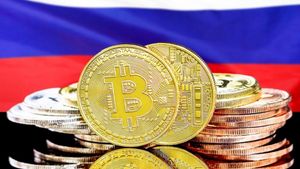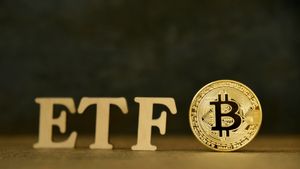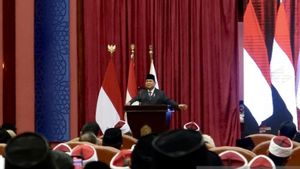JAKARTA - The BRICS Block, which consists of Brazil, Russia, India, China, and South Africa, is increasingly aggressively opposing the dominance of the US dollar. With the increasing de-dolarization movement globally, experts warn that the US dollar may be approaching the "final limit" due to the economic instability and US financial policy that has drawn criticism.
BRICS countries have been vocal against dependence on the US dollar, proposing the use of local currencies as part of a strategy to create a new world order. De-dolarization, or efforts to reduce the use of dollars in international transactions, is their main focus in strengthening economic independence. The launch of the BRICS Pay payment system is predicted to reduce dependence on the US dollar in global transactions.
This BRICS move is seen as a response to Western economic dominance, especially the United States, which has for years dictated global economic policies. With more and more countries interested in joining BRICS, this movement marks the potential for major changes in the global economic order. According to reports, BRICS is preparing a new digital platform that allows cross-border transactions without relying on the US dollar.
Amid the threat of de-dolarization, some economists have begun to voice concerns over the future of the US dollar. Robert Kiyosaki, the famous author of the book "Rich Dad Poor Dad", stated that the US economy is in "the midst of collapse." In one of its podcast episodes, The Rich Dad Channel, Kiyosaki warned that the US economic crisis could get worse, and the dollar may lose its position as a world reserve currency.
SEE ALSO:
Kiyosaki highlighted the policies of US leaders, including President Joe Biden, Federal Reserve Chair Jerome Powell, and Finance Minister Janet Yellen. According to him, their policies, such as increasing the amount of money in circulation, have exacerbated the economic situation. He also criticized the US dependence on the dollar as a global currency that is vulnerable to economic fluctuations.
In addition to the de-dolarization efforts made by BRICS, alternative currencies such as Bitcoin and gold began to emerge as the main competitors for the dominance of the US dollar. Kiyosaki has long advocated the use of Bitcoin and gold as hedging against the economic turmoil faced by major central banks.
The BRICS bloc also continues to explore the use of gold as part of a new payment system that could threaten the dollar. In a recent speech at the Russian Energy Week forum, Russian President Vladimir Putin stressed the importance of an alternative payment system for BRICS countries. The move is considered as one of the coordinated efforts to undermine the dollar's influence in international trade. A number of reports suggest that some BRICS countries have started using gold as foreign exchange reserves to support their economic stability.
With more and more countries supporting de-dolarization, the role of the US dollar as a global currency appears to be increasingly threatened. The launch of the BRICS payment system and the shift to alternative assets such as Bitcoin and gold could accelerate the process. However, the global market is still watching closely how this change will impact global economic stability.
The English, Chinese, Japanese, Arabic, and French versions are automatically generated by the AI. So there may still be inaccuracies in translating, please always see Indonesian as our main language. (system supported by DigitalSiber.id)
















